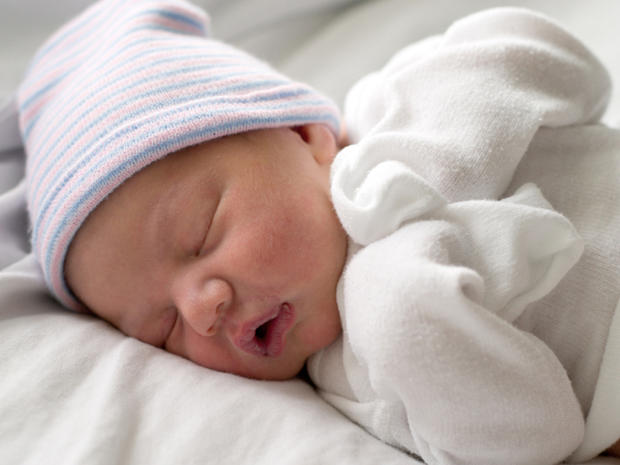Snoring, mouth-breathing tots more likely to develop behavioral problems
(CBS News) Snoring has been tied to many health problems in adults, including obesity, sleep apnea, and a higher risk for heart disease. But according to a new study, snoring may also be problematic for kids' mental health.
PICTURES: Sleepy states: 15 most fatigued
The study found toddlers who snore are more likely to develop behavioral problems like hyperactivity once they reach school-age.
For the study, published in the March 5 issue of Pediatrics, researchers at Albert Einstein College of Medicine in The Bronx, New York City, examined the impact of "sleep-disordered breathing" on kids' behavior by looking at survey results from parents of more than 11,000 children over a six-year-period. Sleep-disordered breathing includes snoring, mouth breathing, and sleep apnea.
Parents were asked to fill out sleep surveys at various intervals when their kids were 6 months to 7 years old, and when their kids were approximately 4 or 7-year-olds, the parents filled out a behavioral assessment.
By study's end, the researchers found children whose sleep-disordered breathing peaked at 6 or 18 months old were between 40 and 100 percent more likely to develop behavioral problems by age 7, compared with kids who breathe normally during sleep. What's more, kids who had the worst behavioral problems had breathing problems throughout their infancy, which peaked when the child was 30 months old.
"This is the strongest evidence to date that snoring, mouth breathing, and apnea [abnormally long pauses in breathing during sleep] can have serious behavioral and social-emotional consequences for children," study author Dr. Karen Bonuck, professor of family and social medicine and of obstetrics & gynecology and women's health at Einstein, said in written statement. "Parents and pediatricians alike should be paying closer attention to sleep-disordered breathing in young children, perhaps as early as the first year of life."
According to the American Academy of Otolaryngology-Health and Neck Surgery, nearly one in 10 children snore regularly and 2 to 4 percent have sleep apnea. Common causes of sleep-disorder breathing are enlarged tonsils or adenoids.
What does snoring have to do with bad behavior? The researchers think these breathing troubles are affecting oxygen flow to the brain and disrupting the restorative processes of sleep, which results in problems related to areas of the brain that control for the abilities to pay attention, suppress behavior, and regulate emotions.
"We are sleeping to restore our brains, and sleep-disordered breathing interferes with that process," Bonuck told HealthDay. "For kids, these are critical periods in brain development."
Can anything be done to prevent future behavioral problems in snoring tots? Bonuck says parents should be paying close attention to how their kids sleep, and if they notice signs of sleep-disordered breathing, should talk to their pediatrician or take their child to an ear nose and throat doctor or a sleep specialist.
The Mayo Clinic has more on snoring.

